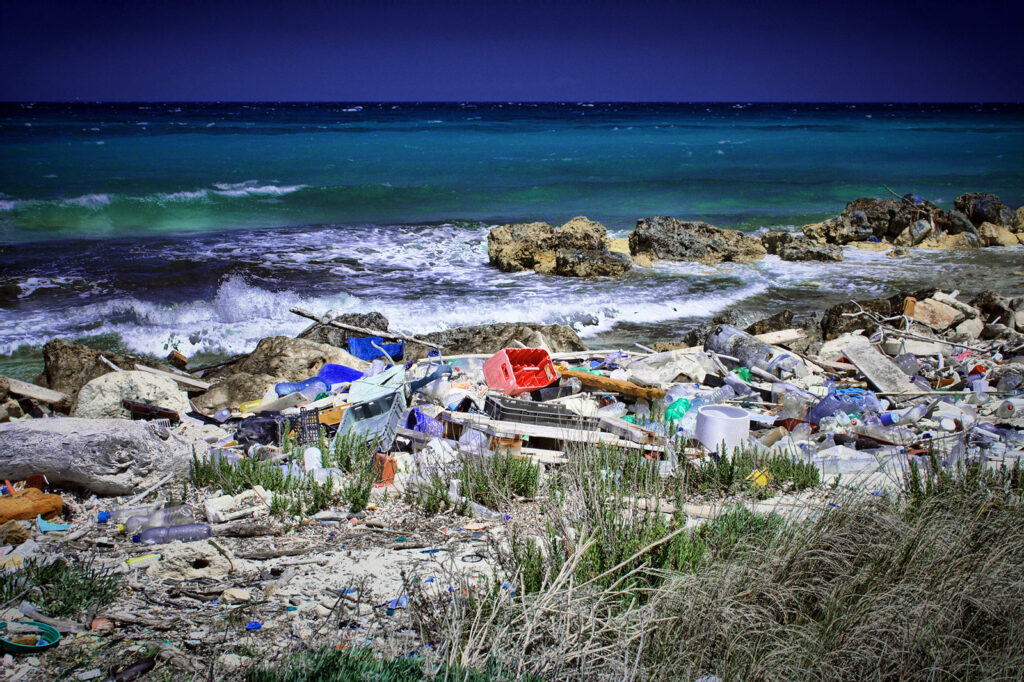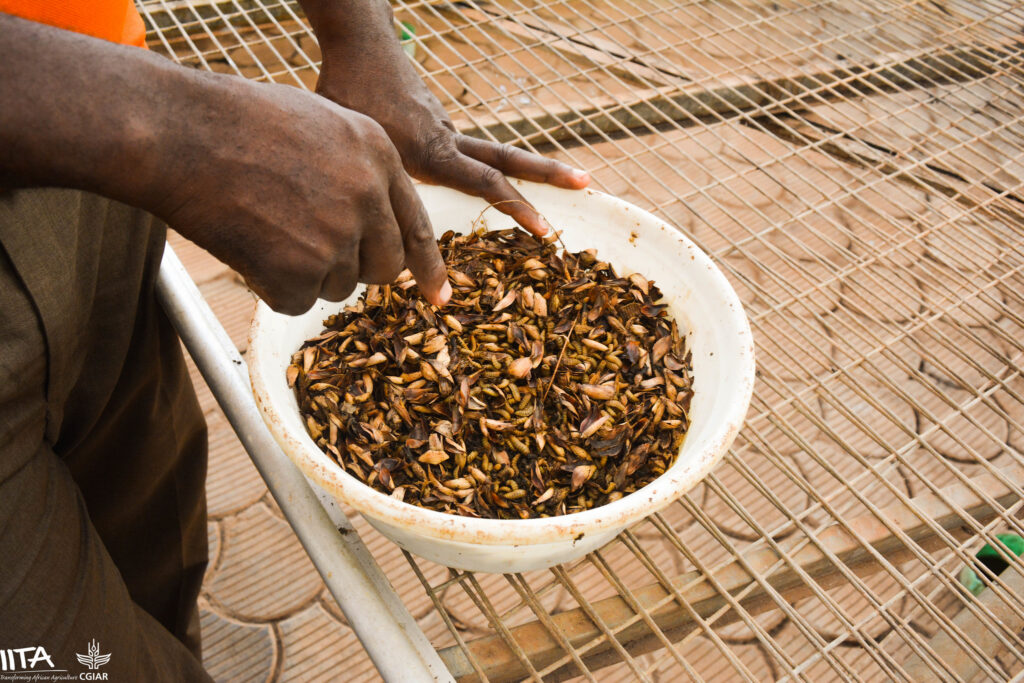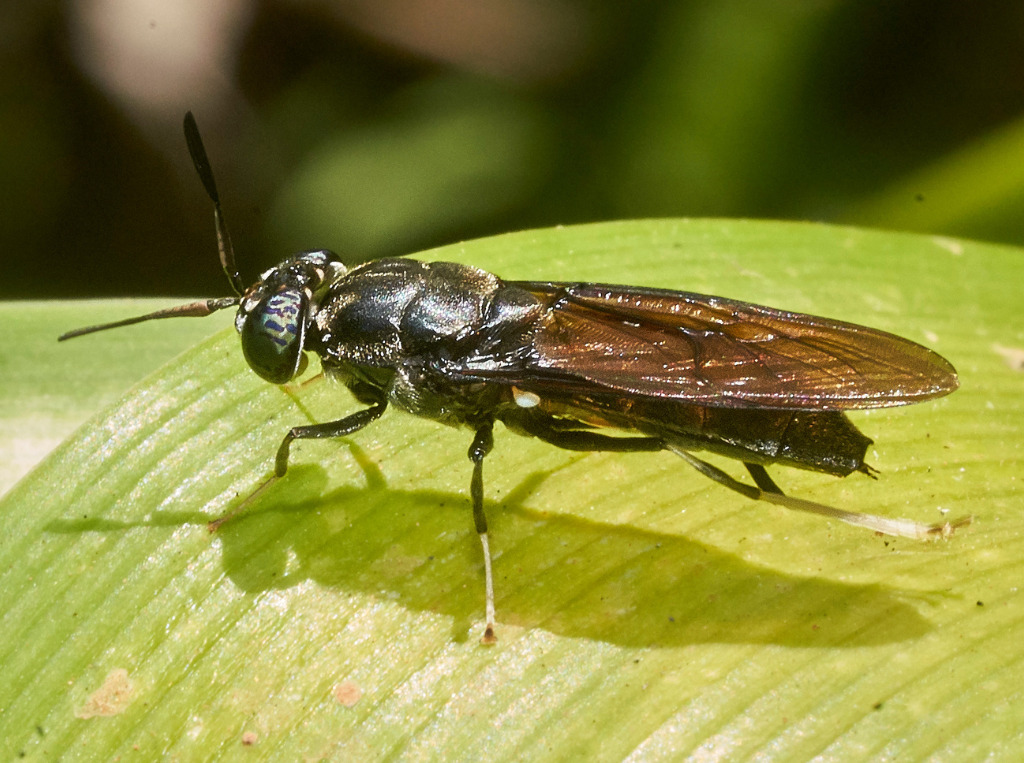Research Shows Dead Flies Could Be Transformed into Biodegradable Plastics – But Insect Farming Poses Welfare Issues
5 Mins Read
Scientists at Texas A&M University have found a way to turn dead black soldier flies into biodegradable plastic. Adult flies, which are said to have no competing applications (black soldier fly larvae are used in pet food, for example), could be turned into polymers that don’t linger in the environment. But there’s a deeper welfare issue at play here.
At the autumn meeting of the American Chemical Society, researchers detailed how black soldier flies can be used as a chemical source to make plastic that can biodegrade via that same species of insects. “Ultimately, we’d like the insects to eat the waste plastic as their food source, and then we would harvest them again and collect their components to make new plastics,” explained principal investigators Karen Wooley. “So the insects would not only be the source, but they would also then consume the discarded plastics.”
She said her group had spent 20 years developing methods to transform natural products – like glucose obtained from sugar cane or trees – into biodegradable, digestible polymers that don’t persist in the environment. But these sources of degradable polymers are also used for food, fuel, construction and transportation, which is where black soldier flies come in.
Using black soldier fly polymer for plastics

While the larvae of the fly are bred for their use in animal feed, pet food and waste consumption, adult flies are said to be ‘less useful’ and discarded after their short lifespan. Wooley’s colleague suggested the dead carcasses become a new starting material for polymers. “We’re taking something that’s quite literally garbage and making something useful out of it,” said Cassidy Tibbetts, a graduate student working on the project.
She found that chitin – a non-toxic sugar-derived polymer that strengthens the exoskeleton of insects and crustaceans – is a major component of the dead flies. While it’s already extracted from shrimp and crab shells, Tibbetts said her fly-based chitin powder seems purer and also alleviated concerns about seafood allergies.
The team used this chitin to create a hydrogel that can absorb 47 times its weight in water in one minute. This can be used in cropland soil to capture floodwater and then slowly release moisture during subsequent droughts. The application is promising in light of recent comments by the president of the UN’s 2022 desertification summit, who said the world’s food supply is likely to face major disruption before temperatures rise by 1.5°C due to intense flooding and droughts, water scarcity, and extreme temperatures.
The team will also begin a project this summer to use the flies to produce bioplastics like polycarbonates or polyurethanes, which are traditionally made from petrochemicals. The researchers say these plastics will not contribute to plastic pollution, since the products made from these chemical building blocks are designed to degrade or digest when discarded.
Insect farming and welfare

Wooley claims that while researchers have isolated chitin and proteins from black soldier fly larvae, her team is the first to do this using discarded adult flies. But this development raises some questions about animal welfare. The demand for this insect is growing, with the black soldier fly market tipped to grow by 30.5% year-on-year to reach nearly $4B by 2033, according to one research firm.
Black soldier flies are increasingly being bred for their larvae, which are used in pet food and to break down waste. While insects like these are touted as sustainable alternatives to animal proteins, owing to their low carbon footprint and resource needs, those that are raised on feed competing with human food crops may have a higher environmental impact than traditional protein sources.
And while the Texas A&M University team’s aim is to use plastic as a feed for the insects in a circular economy model, research has shown that recalcitrant compounds like plastics mixed into food waste may have negative effects on black soldier flies’ growth and survival. Additionally, their efficiency of waste degradation may also be affected by plastics.
Meanwhile, a surge in demand would mean scaling up the production of black soldier fly protein to industrial levels, which presents a higher risk of contracting and spreading diseases. This can, in turn, have detrimental impacts on both human and animal populations. And human-caused climate change and agriculture have been linked to a 50% decline in key insect populations.
In terms of the overall industry, between one and 1.2 trillion insects are farmed for food and animal feed every year. Moreover, insects have been found to feel pain and respond to being handled by exhibiting increased levels of stress hormones. But there are no recognised welfare standards for insect farming, and companies are generally left to decide for themselves what welfare looks like.
There are also no guidelines on how insects should be slaughtered, unlike most animals, who must be stunned before being killed in the EU. As this Wired article suggests, bugs could be microwaved, steamed, boiled, roasted, frozen, or minced to death – even fed alive to farmed chickens.
Leveraging the existing insect breeding and disposal system to create a sustainable solution to the plastic problem offers potential, but the underlying issue of their welfare and treatment is just as important amd must be carefully considered before such solutions are scaled.




